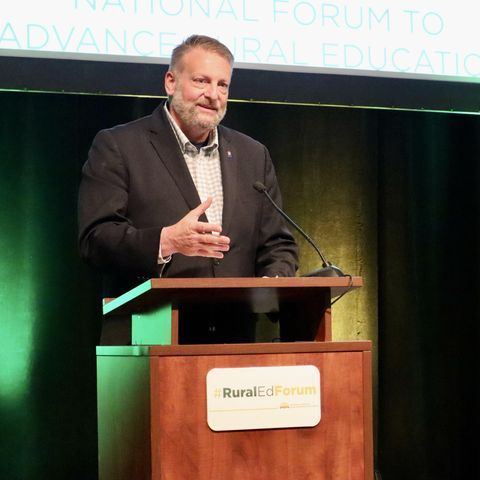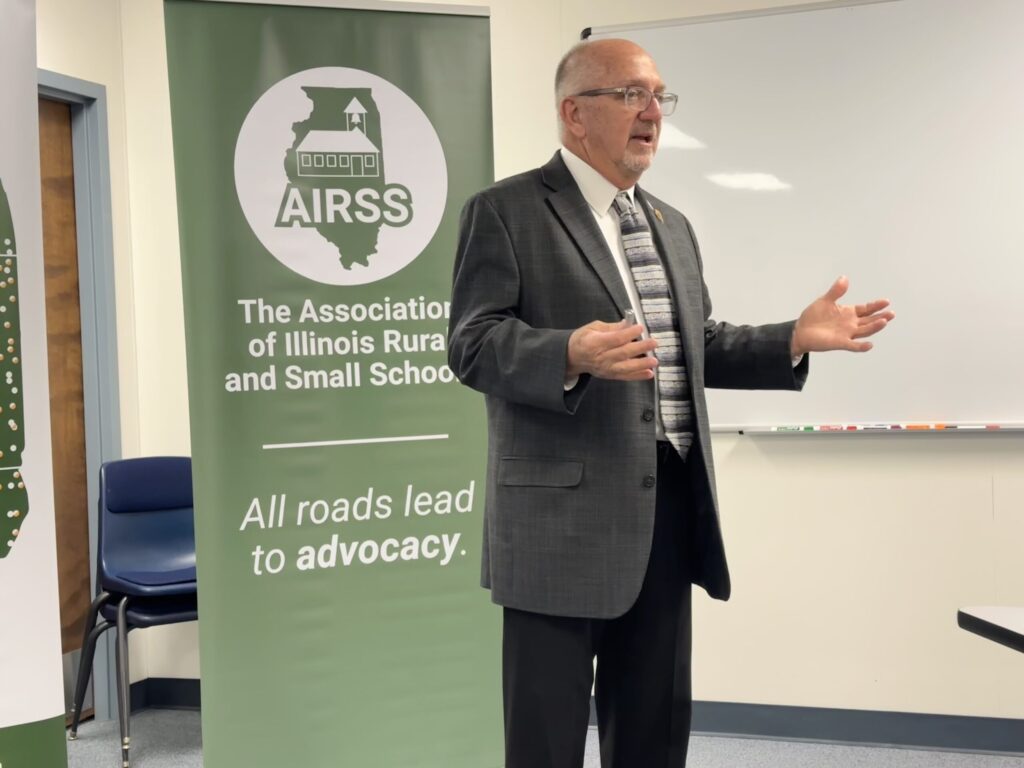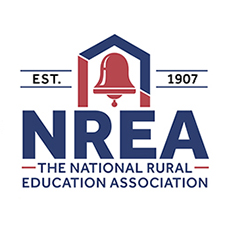Interested applicants need to submit the following to execsearch@nrea.net by end of business on Wednesday, December 4, 2024.
- Cover Letter stating the candidates interest and highlights of why you believe you are a qualified candidate (no more than 2 pages)
- Professional Resume (CV)
Minimum: Personal, Professional Background and duties related to the position of NREA Executive Director - List of three Professional References
- A letter from Partner Agency OR Statement from the Candidate describing the proposed location for the Executive Director’s housing of the NREA Office and the services to be provided.
Example: office space, telephone, Internet connectivity, access to copy machines and other production equipment, technology assistance, graduate assistant or other personnel time provided, etc.
Additional information on #4 above – The office of the NREA has generally been housed at a university/college of the Executive Director’s choosing. In the past the NREA has been housed on the campuses of Colorado State University, University of Oklahoma, Purdue University, and University of Tennessee – Chattanooga. The NREA is open to other approaches or options for a “home”. Partner agencies include but are not limited to institutes of higher education, state agencies, regional education service centers, and other education associations.
The housing of the NREA as described has also made it possible for the Executive Director to be employed by the partner agency. The NREA Executive Director is then employed by the host institution, providing human resource functions including salary, tax deductions, and benefits, for which the NREA reimburses its share.
Job Title: Executive Director
Exemption Status/Test: Executive
Reports to: Executive Board
Date Revised: 10/2024
Primary Purpose: The Executive Director of the NREA provides strategic leadership to coordinate, guide, and grow the organization.
Partnership Requirement: This position requires a partnership with a sponsoring organization (college, university, state organization, regional education service center, etc.). The initial application will require naming a possible partner. Individuals brought in for interviews will be asked to provide more information. Final candidates will be asked for frameworks of agreements with final negotiations taking place upon selection of the final candidate.
*This position will be a joint position with NREA and the Partner Agency. Partner agency will serve as the fiscal agent.
Qualifications:
Education: Doctorate Degree preferred
Experience: Experience working in or for rural schools preferred.
Salary Information: NREA will reimburse up to $75,000 on an annual basis to the partner entity towards compensation.
Special Knowledge/Skills:
- A high degree of leadership skills including planning, organizational, and analytical thinking.
- An ability to work well with individuals and groups – large and small in size.
- Interpersonal skills necessary to be a team player.
- Experience in managing organizational budgets.
- Ability to raise capital for NREA through fundraising, sponsorships, and grants.
- Exceptional personal, writing, speaking and presentation skills.
- An ability to respond to changing situations and priorities with ease and confidence.
- A willingness and ability to travel within the U.S. as needed on behalf of the NREA.
- An appreciation for the diverse cultural, topics, and make-up of small and rural schools.
Major Responsibilities and Duties:
- Maintaining Headquarters and Files
- The Executive Director maintains a headquarters facility and administers the day-to-day operation of the headquarters including the activities of support staff for the purpose of conducting all appropriate NREA business activities.
- Supervises and maintains all NREA files.
- Prepare and file required reports, tax filings, registrations, and other legal documents on behalf of the NREA.
- Responds to all NREA related correspondence addressed to the headquarters or forwarded to the headquarters by members of the Executive Committee in a prompt and timely manner.
- Annual Budget and Fiscal Responsibility
- Develops and submits an annual budget to the Ways and Means Team for review and revision, who in turn submits the budget to the NREA Executive Committee for consideration and maintains a systematic analysis of all revenue and expenditures.
- Fiscal responsibility to include oversight of accounting procedures for handling NREA finances. Supervise day-to-day budget management for both the operating and convention budgets. Work with internal/external accountants and the Board of Directors to ensure timely accounting and reporting of fiscal matters.
- Design and execute long-range plans for a fundraising campaign and work with the Board to identify the budget and timeline for implementation, management and reporting. Conduct at least one major fundraising event annually, including the annual tradeshow and convention.
- Oversee the solicitation, administration/supervision, and reporting/evaluation of any grants received by NREA and ensure grant compliance. Grants must be aligned with NREA’s strategic priorities and the Memorandum of Agreement(s) approved in advance by the Board of Directors.
- Fund Disbursement. Deposits and disburses NREA funds and provides periodic accounting reports to the Executive Committee and the Ways and Means Team.
- Establishes partnerships with private and public foundations that will contribute financial assistance, which enables researchers to conduct research in rural and small schools to help to inform best practices.
- Organization, Membership, and Growth of NREA
- Actively promotes the vision, mission, core values, goals and objectives of the NREA.
- Researches, plans and recommends programs that are in alignment with the vision, mission, core values and goals of NREA and reports them to the NREA Executive Committee.
- Supervises the collection of NREA membership dues and maintains all NREA membership records.
- The Executive Director will work with the nominating committee to facilitate the annual election of new NREA officers according to established procedures and by-laws.
- The Executive Director, in collaboration with the President of NREA, will generate the monthly agendas for the Executive Committee meetings and will provide administrative direction and general program coordination for the Executive Committee and general membership of NREA. Attends all meetings of the NREA Executive Committee.
- Prepares and distributes minutes of all NREA Executive Committee meetings.
- Facilitate functions and activities of NREA committees/teams, sub teams and task forces. In addition, all committee meetings will be reported to the executive board meetings on a monthly basis.
- Responsible for planning and conducting the National Forum to Advance Rural Education (NFARE) in conjunction with a host state organization or plan and conduct NFARE if no host state organization is involved. Establishes partnerships with exhibitors and potential corporate partners to enhance the NFARE.
- Support the needs of NREA members and Member Organizations.
- Supports and promotes collaboration among current State Affiliate organizations as well as prospective State Affiliate organizations.
- Creates and promotes partnerships that will contribute to the vision, missions and goals of NREA.
- Publications
- Supervises the editing, publication, and distribution of an NREA Update, which is published weekly and distributed electronically to all active members of the NREA, and the publication of The Rural Educator, the official NREA Journal. Informs the Executive Committee on a monthly basis of the progress of the publication.
- Provides oversight and organizational expertise and continuity with regard to the Why Rural Matters research and report.
- Any other duties or responsibilities which are requested/assigned by the Executive Committee.
About the NREA: The National Rural Education Association (NREA) was originally founded as the Department of Rural Education in 1907. It is the oldest established national organization of its kind in the United States. Through the years it has evolved as a strong and respected organization of rural school administrators, teachers, board members, regional service agency personnel, researchers, business and industry representatives, and others interested in maintaining the vitality of rural school systems across the country.
The NREA is a membership organization that operates as a tax-exempt, non-profit entity. The NREA is composed of individual members, state affiliate members, school district members, state agency members, college and university members, and corporate partners from across the United States and in several countries. It is directed by an elected Executive Committee consisting of national representatives representing:
- Rural School Administrators
- Rural School Teachers
- State Education Agencies
- Educational Service Agencies
- Higher Education
- Rural School District Boards
- At-Large Constituencies
Our Vision: “The NREA will be the leading national organization providing services which enhance educational opportunities for rural schools and their communalities.”
Our Objectives:
- Serve as a national advocate and representative for rural education at all levels: Local-State-Regional-National.
- Take positions on issues involving rural education.
- Expand rural publications and services.
- Enlist a greater participation of the Executive Committee and Standing Committees in the development of issue papers and policy development.
- Provide coordination, at the national level, for rural education programs and activities.
- Maintain liaison with other national organizations related to rural education
- Strengthen the working relationship with the US Department of Education in the recognition of outstanding rural schools.
- Provide leadership for rural education related conferences and other professional learning.
- Provide a national conference annually.
- Provide continued support and leadership for the annual NREA Rural Education Research Forum and Annual Rural Teacher Symposium.
- Provide a forum for all those involved in public education in rural areas – including teachers, administrators, board members, and members of the rural community at large whereby they may come together professionally and exchange ideas.
- Actively promote member and active participation of teachers, administrators, board members and the rural community at large.
- Maintain the state delegation system.
- Maintain the affiliate membership system representative of individual states.
- Promote state, regional and local delivery systems which bring about efficient and effective education for children in rural areas.
- Identify rural education needs, materials and programs.
- Develop a relationship with mass media and educational technology to serve rural education more efficiently.
- Establish a communication system utilizing any and/or all of the following: delegate system, publications, legislative and educational agency contacts.
- Identify and spotlight delivery systems effectively serving rural areas.
- Recognize exemplary practices in rural education.
- Accelerate emphasis on improving rural education delivery systems through the use of distance learning or other communication technology.
- Encourage the collection and dissemination of promising practices, statistical data, and other appropriate information relating to rural education as well as coordinating the sharing of services and resources among educational organizations and agencies.
- Maintain a strong central NREA office to encourage the collection and dissemination of promising practices and exemplary programs data.
- Develop a networking system for the articulation of rural education needs (i.e., School to School, School to State, and State to State).
- Urge that readers and evaluators of educational programs for national validation, funding, and/or recognition, include rural as well as urban and suburban representatives.
- Encourage colleges and universities to develop materials and resources specifically for rural schools and to train school personnel to work more effectively in small schools.
- Determine what materials and resources for training rural school personnel presently exist.
- Coordinate the establishment of training programs for educators to assist in their personal adjustment and professional adaptation to living and working in rural areas.
- Stimulate discussion, research, and policy development regarding equal educational opportunities for all students.
- Promote research in rural education and recognize outstanding effort through the NREA Annual Research Award.
- Promote the use of ERIC/CRESS, and regional labs for research and dissemination related to rural education.
- Seek grants to stimulate research through the NREA Foundation
- Endorse National Centers for Rural Education Research on University and College campuses.
- Maintain liaison with the Consortium of Rural Education Program Administrators.
- Maintain liaison with Organizations Concerned About Rural Education (OCRE).
- Stress the need for public and private agencies to develop specific educational materials and technology appropriate to children in rural areas.
- Provide data to publishers and media to support the need for specific rural materials.
- Impact publishing houses regarding rural emphasis in texts and related media resources.
- Recognize the development of exemplary rural curricular and professional development materials.




